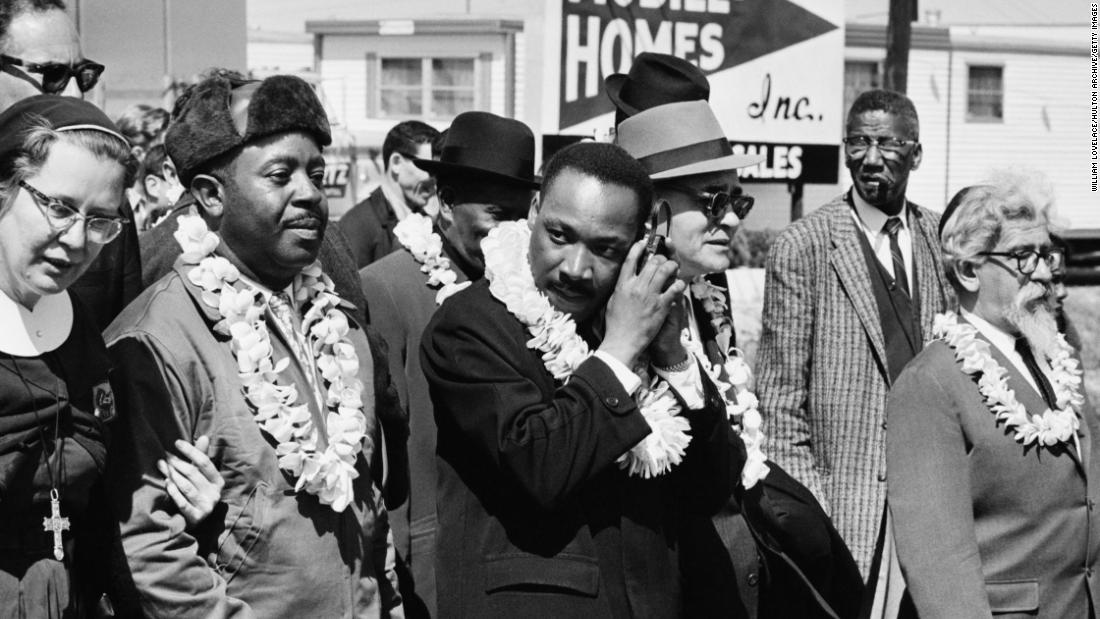
My quick answer: never.
These stories about alleged tensions between Jews and blacks fit a pattern. They hibernate and then resurface every two years to fuel the perception that there is widespread anti-Semitism in the black community or some historical “tension” between blacks and Jews.
But that perception is false. No one should let the uninformed reflections of some black celebrities convince us otherwise. Talk to many people who know the history of both groups and they will tell you the same.
Ravi Perry, activist and chairman of the department of political science at Howard University, rejects the notion that there is a rising tide of anti-Semitism among blacks or some new tension between the two groups.
“There is no more prejudice in the black community around people of faith or ethnicity than any other group,” says Perry. “Like blacks they don’t commit more crimes than whites. Like blacks they are not more homophobic than whites. Blacks are no more anti-Semitic than other groups.”
The historical link between blacks and Jews
Here’s some history you won’t hear in any of those misinformed tweets.
- The Jewish people helped co-found the NAACP and the National Urban League.
- Jewish lawyers helped the NAACP Legal Defense Fund win its long legal battle against Jim Crow segregation.
- A Jewish man wrote “Strange Fruit,” the iconic lynching song that black singer Billie Holiday made a classic.
- Jewish activists fought and died alongside civil rights activists in the 1960s.
- A Jewish lawyer, Stanley Levison, was one of the most trusted advisers to the Rev. Martin Luther King Jr.
“The Jews assumed that they, more than any other group, could empathize with the plight of blacks, and that blacks recognized it,” he wrote. “Jewish newspapers in the early 20th century compared the black movement from the south to the exodus from Egypt, noted that both blacks and Jews lived in ghettos, and described the unrest against blacks in the south as pogroms.”
Contemporary polls suggest that some of that link remains.
“African Americans are actually more likely than white Americans and the general population to say that Jews face a lot of discrimination in the United States today,” says Robert Jones, founder of PRRI and author of “White Too Long: The Legacy of White Supremacy in American Christianity. “
But the survey also found that “a significant number (of African Americans) also make comparisons with their struggles for self-improvement as a people and that of the ancient Israelites.”
The farrakhan with
Why is this shared story so easy to forget, even for educated people?
Part of the answer can be summed up in one name: Louis Farrakhan.
You can assume that Farrakhan has a large following in the black community based on the attention he receives. But Farrakhan’s followers have long been misunderstood or distorted. No matter how he is portrayed, he has not been widely accepted as an MLK or a Barack Obama. Anyone who tells you otherwise is trying to trick you.
But this is what some people forget. His anti-Semitism was never a large part of his appeal to blacks. For some, of course. But for most, it was his message about self-empowerment and the way he denounced white racism.
The media often lose this nuance when they talk about the Nation and Farrakhan. There were churches that could not or could not reach black men in prison, or did not know how to reach young men. But the Nation did, and still does.
Perry, the political scientist, says that many blacks ignore parts of Farrakhan’s anti-Semitism, just as they do with other religious leaders.
“Assuming that every black member of the church believes that everything their pastor says out of their mouth is ridiculous,” he says, “but that doesn’t mean they are going to stop going to church.”
Signs of progress
That reasoning is not enough for some Jewish leaders.
Oren Segal, vice president of the Extremism Center of the Anti-Defamation League, says there is not a growing wave of anti-Semitism in the black community. He speaks passionately about the history of blacks and Jews working together for justice.
“I have no doubt that there are some people who ignore anti-Semitism and hatred and focus on other elements that the Nation of Islam is trying to talk about,” he said. “But choosing and choosing is easy for people who are not affected by hate.”
He says Jews need more black people to face Farrakhan.
“Some people in the Jewish community wonder when we know that an apology is sincere after someone makes an anti-Semitic statement.” he says. “It is when people hold Farrakhan accountable for his hatred. That will be a sign of progress.”
Here could be another sign of progress.
When people think of black-Jewish relations, I hope that one more day they will think not of Nick Cannon or DeSean Jackson, but of these three names: James Earl Chaney, Michael Schwerner and Andrew Goodman.
There is a heartbreaking photograph of their three bodies, twisted and tangled where they were buried in a deserted earth dam. They died for each other, and with each other.
That photo may no longer control the news cycle, but any ill-considered comments on social media should overshadow what it represents.
.